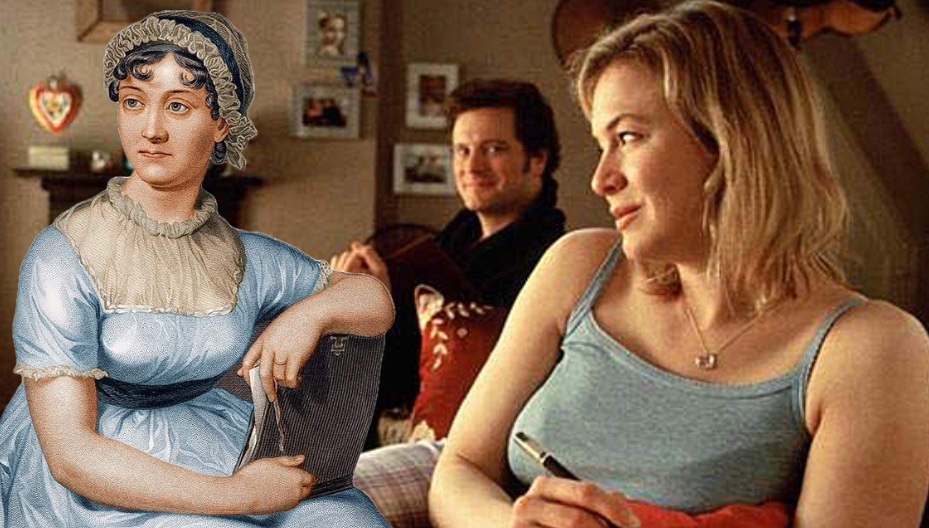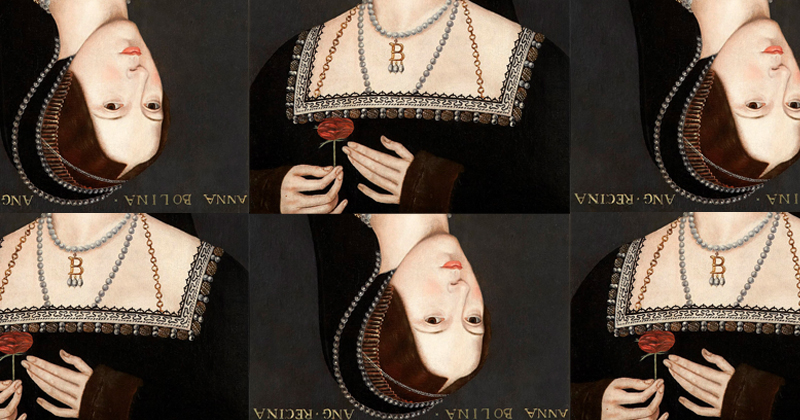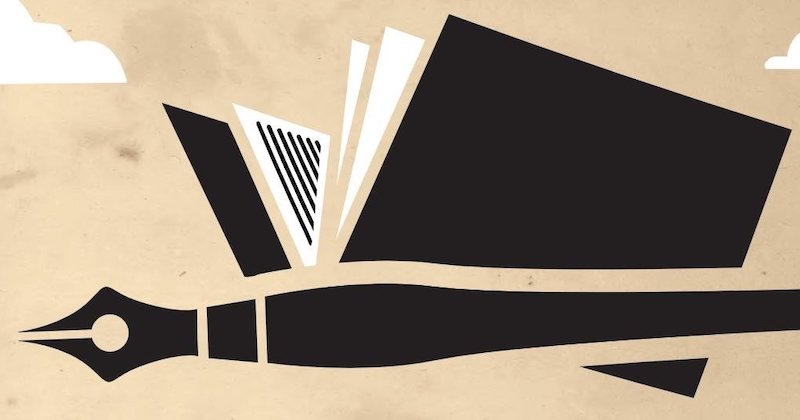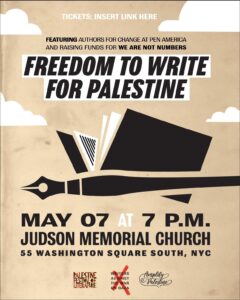Conceived as a modern day Elizabeth Bennet—or at least, another woman in love with an emotionally unavailable man—Bridget Jones made a massive splash when she hit the shelves in 1996. Her diary, written by Helen Fielding and alternately derided and praised for its depiction of a neurotic, happy-go-nutty modern “singleton,” sold more than fifteen million copies. It also spawned three sequels, which were adapted into two blockbuster films of sharply contrasting quality. Word on the street is that a fourth film is fast coming down the franchise pipeline. This latest movie is adapted from the final(?) and controversial 2013 novel, Mad About the Boy, which finds Bridget widowed…and looking.
Though I still think of the original Diary as one of the more successful literary and film adaptations ever (fight me), both the book and film sequels have given me pause. Without the frankly perfect structure of Pride and Prejudice’s plot to scaffold her journey, Bridget’s antics have veered from cringey to bizarre. (Drug busts in Thailand!? Vegan condoms exploding?!) As part of my emotional preparation to watch yet another Bridget story on an airplane, I’ve been thinking about the sequels’ relationship to the source material. When and where did Bridget get so far from Lizzy? Her source?
This led to a thought experiment. What if Fielding’s inspiring text—aka, Jane Austen’s Pride and Prejudice—also had sequels, inspired by Bridget Jones’? Might we gain something from reverse-engineering the wacky modern plots back into the circumscribed universe of nineteenth century England? Could following the original Darcys point us to a better denouement for these great characters? Reader, what follows is the fruit of my wondering. Or: three synopses for sequels to everyone’s ur-favorite romantic comedy.
*
In Fielding’s first sequel, The Edge of Reason, Bridget is plagued with jealousy about her new boyfriend Mark (Colin Firth)’s Very Friendly relationship with a co-worker. Her friends persuade her to end things—a plot point Fielding actually borrowed from another Austen novel, Persuasion. After a stressful break-up, a heartbroken Bridge goes to Thailand on a work assignment and—per Rotten Tomatoes—has “a dalliance with her disreputable ex, Daniel (Hugh Grant).” Some more zany things happen, but in the end of book and movie, Mark and Bridge reconcile.
Now imagine, if you will, applying this formula to the Regency…
Pride and Prejudice: The Edge of Reason
After igniting Lady Catherine’s permanent ire and fleeing to Pemberley, Lizzy and Fitz settle into a pleasant routine. Lizzy now has grounds enough to muddy a million dress-hems. But because the landed gentry didn’t have to dirty their actual hands with, um, “work,” The Edge of Reason arc about Mark and Rebecca swanning around for business doesn’t entirely scan. Instead, I vote we take a page from Fielding and enlist another Austen property to tell this installment in the old story. Mansfield Park, anyone?
In Pride and Prejudice: The Edge of Reason, Fitz goes to the colonies to oversee the operations (read: sugar plantations) responsible for his fortune. He’s accompanied by his bestie, Bingley, as well as Lady Catherine, her daughter, and the good reverend Collins, who aspires to missionary status.
Initially bored in her husband’s absence (because again, NO ONE HAS A JOB), Lizzy invites her old pal Charlotte over for an extended stay. Thrilled to be parted from her hubby, Mrs. Collins is ready to turn up. She insists on throwing a ball at Pemberley. But the tackiest Bennet sisters get wind and glob onto the event planning, and before Lizzy can protest the evening has spiraled out of control. On the night of, we’re in epic house party mode. Priceless vases are imperiled. To the madame’s chagrin, Lydia’s trash husband even makes an appearance. But surprisingly, Mr. Wickham invokes pity, marriage to Lydia having clearly worn him down. There is an extended, punch-fueled sequence in which Lizzy wanders the grounds of her estate with her ex, who, it must be said, remains a charmster. But in a characteristically manipulative move, Wickham enlightens Lizzy as to the source of Darcy’s fortunes, a subject he’s always been cagey about. On learning of what really goes on at those Antigua plantations, our heroine is distraught.
The rest of this sequel would follow Lizzy’s moral crisis. Can she keep wandering the gilded halls of Pemberley, knowing how the sausage is made? Can she look her beloved in the eye? When Darcy returns, there’s a feisty confrontation. Lizzy wants him to abdicate their fortune and make reparations; the unemployed fussbudget will not. Things look bad for the couple until Lizzy rises early one morning and happens to catch her husband jumping into his favorite lake. I can live with it, she thinks, throwing wide the silk curtains to better admire Fitz’s damp physique. They kiss and make up before making a half-hearted long-term divestment pledge, and resolving, in the short term, to boycott sugar.
*
In Fielding’s third book and its film adaptation, Mark Darcy has been sidelined. Turns out he and Bridge haven’t been able to stay “bewitched, body and soul.” At top of book and movie, we find Ms. Jones killing it at work, but romantically adrift. Until an American (McDreamy) appears to sweep her off her feet.
There’s a dalliance—then a wrinkle, in the familiar form of return-of-the-ex. Mark and Bridge have an unexpected rekindling. A zygote is discovered shortly thereafter…but who’s the daddy? Cue, hijinks! Drama!
Lizzy Bennet’s (Lack of a…) Baby
This is a tricky one to reverse-adapt to the Regency, given that divorce was all but verboten in England until 1857. (And even then, per Sybil Wolfram’s study on the subject, it was “granted by Parliament only for adultery, and women could not procure a divorce unless the adultery was compounded by other forces, such as incest or bigamy.”:-/) Let’s say then that Lizzy and Fitz experience a mere alienation of affections in their third installment. The beginning of this sequel would find the Darcys living like another bummer/fictional/English couple: Edward Casaubon and Dorothea Brooke, of Middlemarch.
It’s not hard to picture Austen’s taciturn Darcy holed up in a study like his Victorian descendant. But what might have prompted such a flight from the nest? To reverse-engineer the paternity plot for the era, maybe Lizzy and Fitz’s troubles arise from a failure to produce an heir, despite their still-rocking romance. Lizzy’s turning the haggard old age of thirty soon, and her mom’s really breathing down her neck. Meanwhile, Jane and Bingley have a passel of tow-headed children. Charlotte’s got twins. So the Darcys feel isolated. The marriage is suffering under the weight of society’s prejudices, and Fitz’s evergreen pride.
This third sequel would follow the couple’s slow reconnection, and chart their coming to terms with the size of their family. I’m seeing this one as an introspective, coming-of-self kind of text. Lizzy would spend a lot of time reconnecting with her proudly child-free sister Mary, and begin to see her for the studious baller she always was. The book ends with the couple on a double date holiday in the lake country with the Gardiners. Everybody gets lifted on mead, and there is much rejoicing. Who needs heirs?
*
Fielding really rocked the fanbase with 2013’s Mad About the Boy, a sequel that found Bridget Jones the widowed mother of two. That’s right: Darcy was dead, to begin with. (But he went out in a flash of heroism, after stepping on a landmine “negotiating the release of aid workers in Sudan.”) This fourth Bridget novel, whose starry adaptation is coming to a Roku near you in 2025, injects a familiar formula with flashes of pathos. Bridget dates, she grieves, then dates again. She’s still a mess, but she has heavy reasons to be so. And this being a rom-com, something like love seems likely to find her, in the end.
Lizzy Bennet: Sad About the Man
This is a plot that would pretty much scan in the Regency era. But I crave a little more novelty. Let’s say, in our fourth and final(?) Pride and Prejudice installment, Fitz returns to the West Indies fueled by his and Lizzy’s renewed interest in divesting from that ill-gotten family fortune. (They’ve had a lot of time to think about their values, in these intervening years of eat/ball/loving alone in their mansion.) But while touring the Antigua plantation, Darcy is murdered in an uprising. A devastated Lizzy returns to England alone. Her friends and family flock to her side. She gets into horses. She reads some books. Towards the end, she meets a young, broke hottie after William Wilberforce and gets into abolition. It’s hard to get over Mark—sorry, Fitz—but Lizzy discovers a fun new crowd in the Quakers agitating for manumission. In anticipation of her spiritual descendant, Jo March, she and the new beau convert Pemberley into a revolutionary, integrated girls’ school.
And there is much rejoicing.
(@ me, Penguin Random House.)










